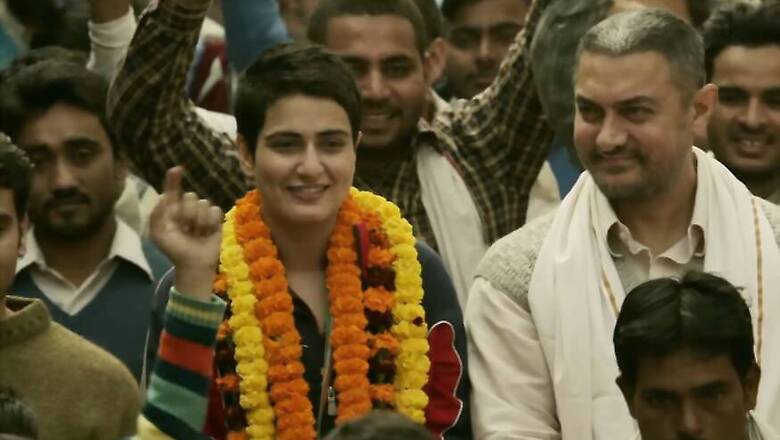
views
Director: Nitesh Tiwari
Cast: Aamir Khan, Sakshi Tanwar, Fatima Sana Shaikh, Sanya Malhotra, Zaira Wasim, Suhani Bhatnagar, Vivan Bhatena, Aparshakti Khurrana
Director Nitesh Tiwari’s Dangal is not just a film. It is a project with the best cinematic composition. What breathe here are the real issues, their incredible treatment and a constant collision of ideas that will affect you for the rest of your life. Based on the real story of wrestler Mahavir Singh Phogat’s (Aamir Khan) sole dream of seeing his country win “gold", the journey that Dangal takes you on will immerse you in his life and take pride in the achievements of his daughters Geeta and Babita – people you’ve never met.
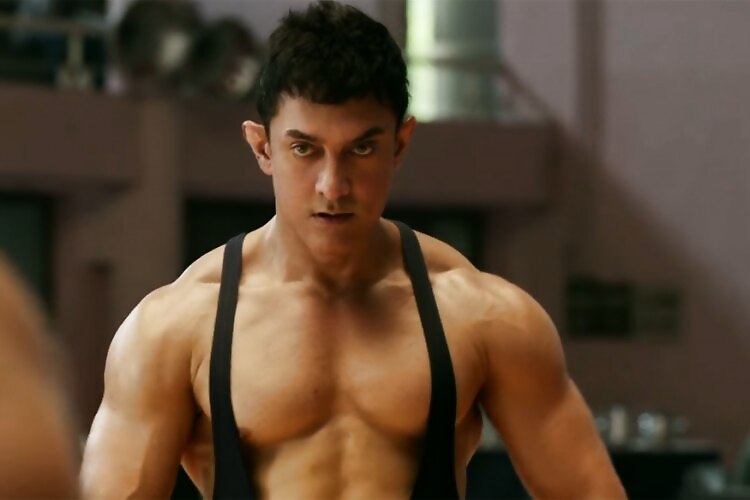
The opening scene of the film is just a glimpse of Phogat’s passion for the sport – wrestling. What starts as a mere viewing of a wrestling match between Russia and America on TV soon turns into a real wrestling bout between Khan and Vivek Bhatena in a dingy ‘sarkari’ office. And the moment Khan gears up for the fight, one is immediately told about the wrestling workouts he has been going through for the past many years. Since the lack of government sports funding deterred Mahavir from realizing the dream, he decides to train his daughters Geeta and Babita to become not just skilled wrestlers, but also winners. This is a film that will not just motivate you, but also inspire you to think differently.

As Phogat sets out on the mission to train his daughters to win gold for India, Tiwari uses the narrative to show how both Geeta and Babita would not play to the tunes of the patriarchal society. From wearing shorts, to being pitted against boys in matches and keeping their hair short, Tiwari is brilliant in showing how Phogat and his daughters stood their ground and showed no qualms in subverting the patriarchal mindset and its shackles.
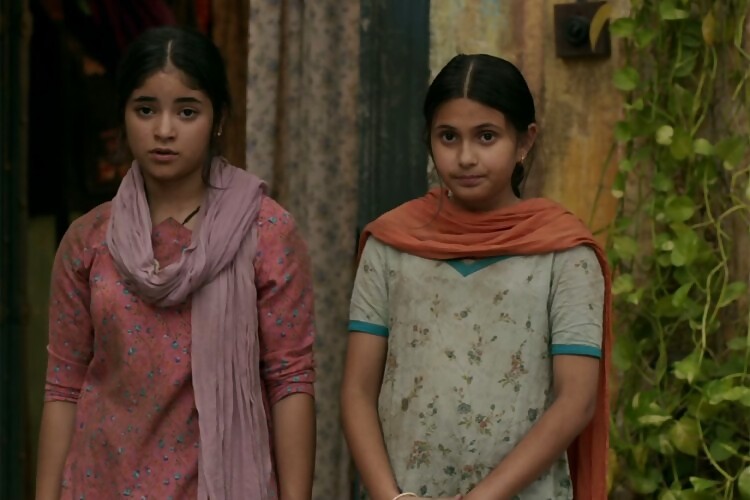
The first half of Dangal works exactly like a skilled wrestler – invariably sure of its moves. While you’d enjoy how Khan trains his young daughters Geeta (Zaira Wasim) and Babita (Suhani Bhatnagar) after they thrash the neighbour's sons for abusing them, you’d also be moved by his affection for them. Phogat might be open while ‘thrusting’ his ideas on his daughters, but a bit shy in expressing his unconditional love for them. This is exactly why he doesn’t mind caressing his daughters’ aching legs while they are fast asleep.
This is a film that touches upon the complex, taxing, and also gratifying relationship that a father shares with his daughters in the most beautiful way.
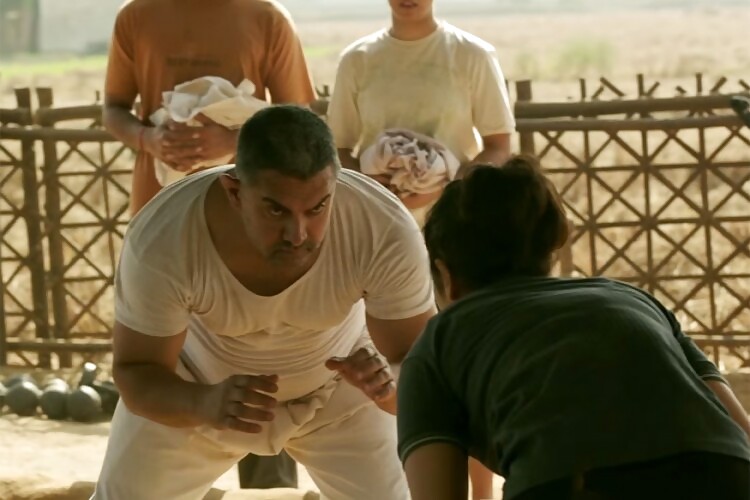
The film’s second half is all about victory. Mahavir’s transformation from the once upset father of a baby girl to the most triumphant one to Geeta’s string of losses before she finally wins a gold during Common Wealth Games to desi akhara being replaced by wrestling mat – every moment works in contrast to what you had watched earlier. But not even once does the film loses its focus.
Interestingly, the film’s dialogues – both hard-hitting and thoughtful - will remain etched in your mind and add to the film’s impact. Pahalwani khoon mei hoti hai, Jitni izzat maati ki karogi utni izzat maati se tumhe milegi, Jahan guru hoga wahan baap nahi ho sakta and Uss second ka intezaar karo jab saamne wala galti karega – each of these dialogues define the film’s spirit. Character mouthing these dialogues light up the screen as they speak in Haryanvi diction and capture the fierceness of Haryana.
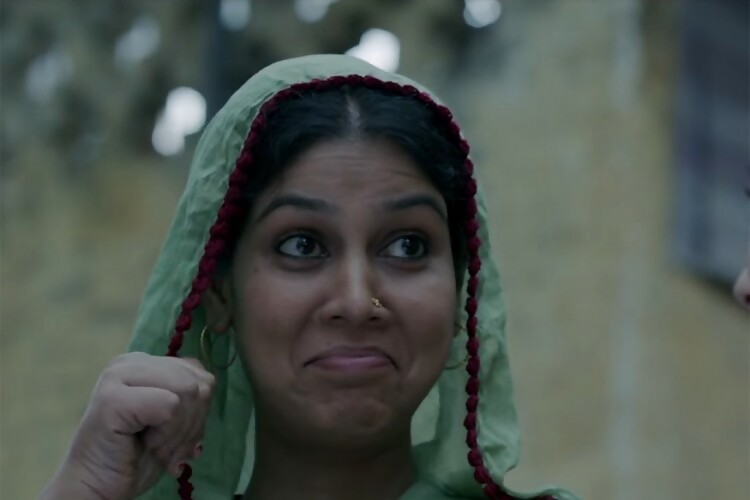
As far as performances are concerned, Sakshi Tanwar is impressive as a docile wife and a caring mother.
Fatima Sana Shaikh plays the character of Geeta Kumari Phogat with utmost perfection and ease. She has invested sincere efforts in learning wrestling, sports a short hairdo and doesn't play the ‘quintessential’ girl - in a nutshell, her performance will be widely appreciated. Similarly, Sanya Malhotra also pulls off the role of Babita Phogat with ease. Debutants Zaira Wasim and Suhani Bhatnagar are equally competent. They capture the innocence and the strength that their characters call for effortlessly. Aparshakti Khurana (who was last seen in Saat Uchakkey) brings both warmth and humour to the film, particularly in the scenes where he seen with Aamir Khan.
But what keeps the film truly engaging is Aamir Khan. He holds on to the distinctiveness of the character Mahavir Singh Phogat, undergoes dramatic physical transformation at 51 years and simplifies wrestling for the viewers. Phogat’s ambition, struggles and victory could never have become so fascinating, had it not been played by Khan. Because Khan treats ‘acting’ as a human tendency and not vocational ability, he makes it look so real. You believe him when he transforms from being a conservative man to the most progressive father who’d thwart gender roles and make his daughters true winners.
All those who have been waiting for a film that is a brilliant blend of aspirations, hope, perseverance and victory, Dangal is by far the greatest sports biopic.
Rating: 4/5




















Comments
0 comment